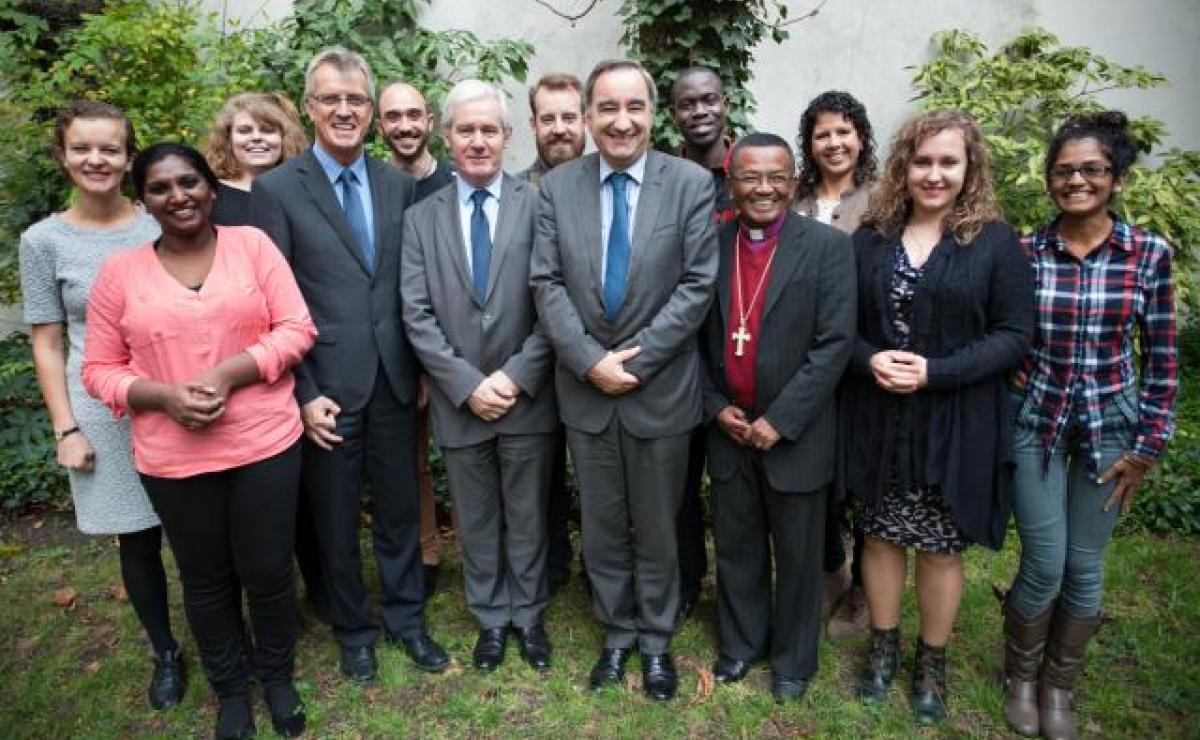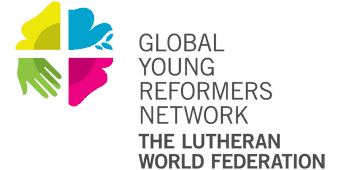Churches stand side by side in fight against climate change

(LWI) - The Lutheran World Federation (LWF) delegates taking part in faith and civil society action at crucial climate talks in Paris are also using the opportunity to build solidarity with the French churches.
World leaders meet 30 November-11 December, for the 21st Session of the Conference Parties (COP 21) to the United Nations Framework Convention on Climate Change to negotiate a response to global climate change. LWF’s team to Paris brings the perspective of their regions to the debate.
“LWF decided young people should lead on this issue of environment,” said Pranita Biswasi, 25, representing Asia. “What we do here is connect with different faith-based actors,” added the member of the Jeypore Evangelical Lutheran Church in India.
LWF General Secretary Rev. Dr Martin Junge, who accompanied them to Paris,, emphasized the importance of solidarity with the French churches.
“To us it was so important that we would be able to not only participate in the high level meetings and events of COP 21 but that we would be sure that we connect with, get feedback from, and be nurtured by what our constituencies are doing here in France,” Junge said.
This solidarity cuts both ways. During a visit to the LWF-associated Institute for Ecumenical Research in Strasbourg, Rev. Dr Sarah Hinlicky Wilson offered prayers for Biswasi’s home region, where recent floods are threatening the community.
That moment gave friends in less vulnerable regions a very immediate and personal example of the role of climate change in creating extreme weather. It graphically illustrated the different climate change realities for the LWF representatives.
Religion in minority and majority contexts
The delegates also learned about the unique challenges of faith-based political advocacy at the talks.
“The history of France itself is very much shaped by the conflict between the Roman Catholic Church and the political realm,” Rev. Laurent Schlumberger, president of the United Protestant Church of France, told the delegation.
“In this context, Protestantism has always been a minority and a threatened minority. Today the majority of the society is atheist or agnostic,” he said, adding that in such an ultra-secular context, religion is often kept out of the political sphere altogether.
This picture stood in stark contrast to the testimony of Nordic delegate 23-year-old Matilda Mattsson. She described the important contribution of the church in a country where 5 million of the 9 million population belong to the Church of Sweden.
“We have had people going to the climate conference for 10-15 years with the Church of Sweden delegation. And this year we have the archbishop here. So right now the climate question is very highly prioritized in the Church of Sweden, and it will continue to be,” Mattsson said.
Step by step
Rev. François Clavairoly, president of the Protestant Federation of France, emphasized that as Protestantism is a minority in France, it speaks with a humble voice in the country. “It's very difficult to have access—we are actually very far from the Swedish context.”
If anything, French churches have more in common with the situation presented by the African delegate, Pascal Kama, 30, of the Lutheran Church of Senegal. Despite being a minority religion in a Muslim context, a plastic bag recycling initiative the church started was so successful that public officials fully endorsed it.
“For us as a church, when it comes to climate justice, we already have the means to achieve something. And from there you can move forward step by step and that will show people that somewhere there is someone who is doing something on the environment,” Kama added.
(By LWI correspondent Ryan Rodrick Beiler)
